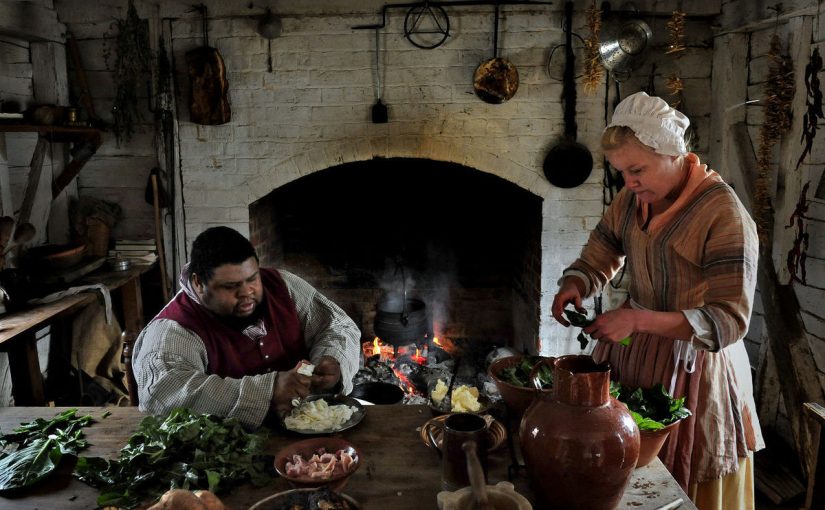The Cooking Gene by Michael W. Twitty
“I have often wondered whether white people who know we are kin actually see us as family. It’s critical to me to think about the possibilities of every Southern white family connected to African Americans on DNA tests truly reaching out and vice versa, to create a dialogue. Would we be better off if we embraced this complexity and dealt with our pain or shame? Would we finally be Americans or Southerners or both if we truly understood how impenetrably connected we actually are? Is it too late?” (Twitty, 116).
“Shifting cultivation, the uses of animal manure and ashes as fertilizer, using vegetable scraps to enhance a garden’s fertility, multiple turning of the soil, and the modeling of garden spaces after the plant communities of nature—all tips out of the permaculture handbook—came hand-in-hand with Africans in the South” (Twitty, 266-267).
Through these quotes, we can explore identities seen and unseen, known and unknown, acknowledged and unacknowledged. They alter how we view kinship, labor roles, and knowledge in a way I haven’t ever really thought of before. As someone who has lived her entire life in the northern states of the United States and has never really been to the South, this book was provoking for me on so many levels. Although it seems so blatantly obvious after reading this book, I’ve never really thought about the origins of comfort or soul or Southern food or how truly important they are to the identity of the Southerner, no matter black or white.
Influenced by many different African cuisines, cooking practices, foods, and flavors; Indigenous American practices as well as cultivated and foraged foods; and various European cuisines, cooking practices, and crops, Southern cooking occurred in a specific place at a specific time for a specific reason. And African Americans were absolutely paramount to the creation of it. (Twitty says on page 163 “…and you will understand how beautifully bewildering out heritage is, and why it was impossible to birth this cuisine anywhere else on the planet”). I never really thought about the importance of Southern food as an identity for African Americans, but it makes perfect sense. Food is something easily passed from generation to generation. It is a way to remember, honor, and stay connected to those before you. Even when there are little to no material goods to pass on, food endures and bines. Food is powerful and important and evocative. Slavery ripped away histories and cultures and familial connections to kin and land, but it couldn’t quite take away the memory of the food even as it evolved and adapted to the food available and the practices used.
For me, these quotes embody who gets to choose their identity and their legacy and who does not. Those with power have the ability to erase—erase either their own histories or erase the histories of those they oppress. With the first quote, this is clear in the unwillingness to acknowledge the literal connection (kinship) Southern white families have to black families. The connection is there, but it is too shameful for white folks to touch upon it or talk about it.
The second quote hit a different nerve in that this is also a component of the African American identity and history—one of skilled and knowledgeable farmers. This is the way agriculture is heading in the future, but it is by no means new—something many permaculture adherents neglect to mention. Yet again those in power have the ability to erase a history and identity.
For me, it comes back to the question: who do we think of as farmers and why? But even more so: who really grows our food? and who actually gets credit for growing our food? This is just as applicable today as it was in the antebellum Old South. Then, it was truly the enslaved African Americans with the knowledge and experience to grow and harvest the crops needed to sustain. Now, it is often migrant farmworkers that cultivate and harvest our food. Neither of these are the faces we tend to think of when asked who is a farmer but both have played a huge part in our food system over time and space. Why is that?
Even more so, this second quote goes beyond African Americans having a role in the food system—these practices shows a deep knowledge and connection to the land that goes beyond commodification or profit margins. These farming practices take into account a reverence, respect, and understanding of the balance farming should seek to maintain. This type of farming is not the same as monocropping a cash crop, and it is important it is not erased. Permaculture is not a new trend or fad, and there needs to be credit where credit is due.
SOURCES:
Twitty, Michael W. The Cooking Gene; A Journey Through African American Culinary History in the Old South. Harper Collins, 2017.
